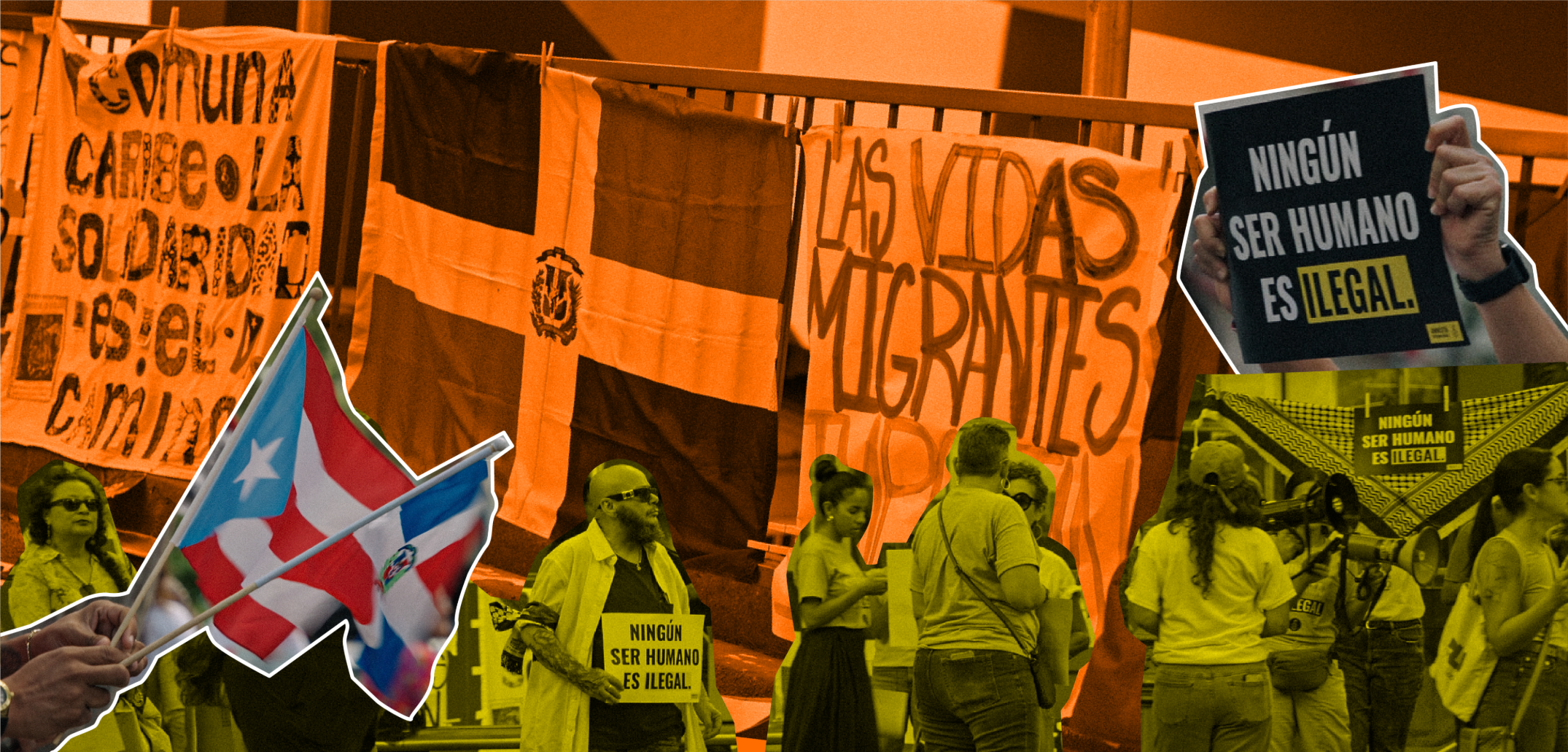
La Colmena Cimarrona: "Powerful women raising awareness" on food sovereignty for the islands
La Colmena Cimarrona is a women led organization created to tackle food crisis in Vieques
Hunching over basil and pepper plants under the hot Vieques sun was not on my agenda for a Wednesday afternoon in June. I arrived at La Colmena Cimarrona at 3:30 p.m., looking to speak with the organization's leaders to learn more about their work and goals. After four hours of pulling weeds and sifting compost soil with the hardworking women of the farm, I discovered that La Colmena is far more than just a farm: it is a center of growth, learning, and community. Spending a few hours working side by side with people on the land taught me more about La Colmena than I ever would have from a chat or interview.
“La Colmena Cimarrona” means Maroon Hive. It caught my interest as an organization that focuses on supporting health in Vieques—an island municipality to the east of Puerto Rico—through food. According to Katherine Martinez Medina, a co-manager of the farm, Ana Elisa Pérez Quintero and Elda Lud Guadalupe Carrasquillo cofounded La Colmena Cimarrona in 2018 to support the health and nutrition of the community following the destruction of Hurricane Maria. They came together to provide meals to residents when Vieques went two weeks without ferry services to import food to the island.

“La Colmena was created to address the food crisis, which is another major deficiency and problem in Vieques,” said Martinez Medina.
Pérez Quintero and Guadalupe Carrasquillo formally established La Colmena as an agroecological farm to promote self-governance and food sovereignty in the community.
The international farmers' organization La Vía Campesina coined this term at the World Food Summit in 1996 to refer to "the right of peoples to access healthy and culturally appropriate food, produced using ecologically sound and sustainable methods."
Carol Gerena Ramos, professor of food systems planning, believes that various groups around Puerto Rico have met these production and distribution criteria. However, the difficult part is complying with a second component established by La Vía Campesina: the "right to define their food and agricultural systems." This is an even greater challenge, according to the professor, who teaches at the University of Puerto Rico, Río Piedras Campus.
"How do we exercise the 'right to define our agri-food systems' in a colony like Puerto Rico? Moreover, how do we exercise it from a context like Vieques, a municipality that has been called the 'colony of the colony'?" she asked.
In her opinion, La Colmena Cimarrona in Vieques is actually doing it.
Women-led organizing in Vieques
On my first visit to La Colmena, I quickly noticed that I was surrounded by women. Women of all ages and backgrounds volunteered with me, and comprised the entire administrative team of the farm. This alone is astonishing within an economic sector where only 12% of Puerto Rican farm operators earning more than $500 per year are women, according to the 2022 Census of Agriculture published by the United States Department of Agriculture. However, data is scarce and limited due to low participation and exclusionary policies.
Ramos Gerena described La Colmena as "a space where women, mostly of African descent, assume food sovereignty by making decisions about their land, their food, their people, and their food system."
Many of La Colmena’s leaders are also involved in additional community-based organizations such as the Alianza de Mujeres Viequenses. La Alianza and La Colmena collaborate often, highlighting women as the leaders of social change and community empowerment. Martínez Medina believes that women have taken their imposed role as caregivers outside of their homes and into the public space, to provoke changes while leading with care and empathy.
“I find that women systematically fall into this role of caregiver, this role of archivist, of keeping records, this role of household leader. So, I think all these tasks, managed by all these gender roles, have developed a leadership style that has been supported by others and that has led them to organize to defend their home… their land, their family”, said Martinez Medina.
Sandra Melendez, administrative coordinator of the Alianza, credited the women of La Colmena for tackling issues to support the community and promote autonomy on the island. “There are many things that are the state's obligation, but I understand that there are also many other things that we can achieve ourselves.” She then described La Colmena as a group that models community action for the common good.
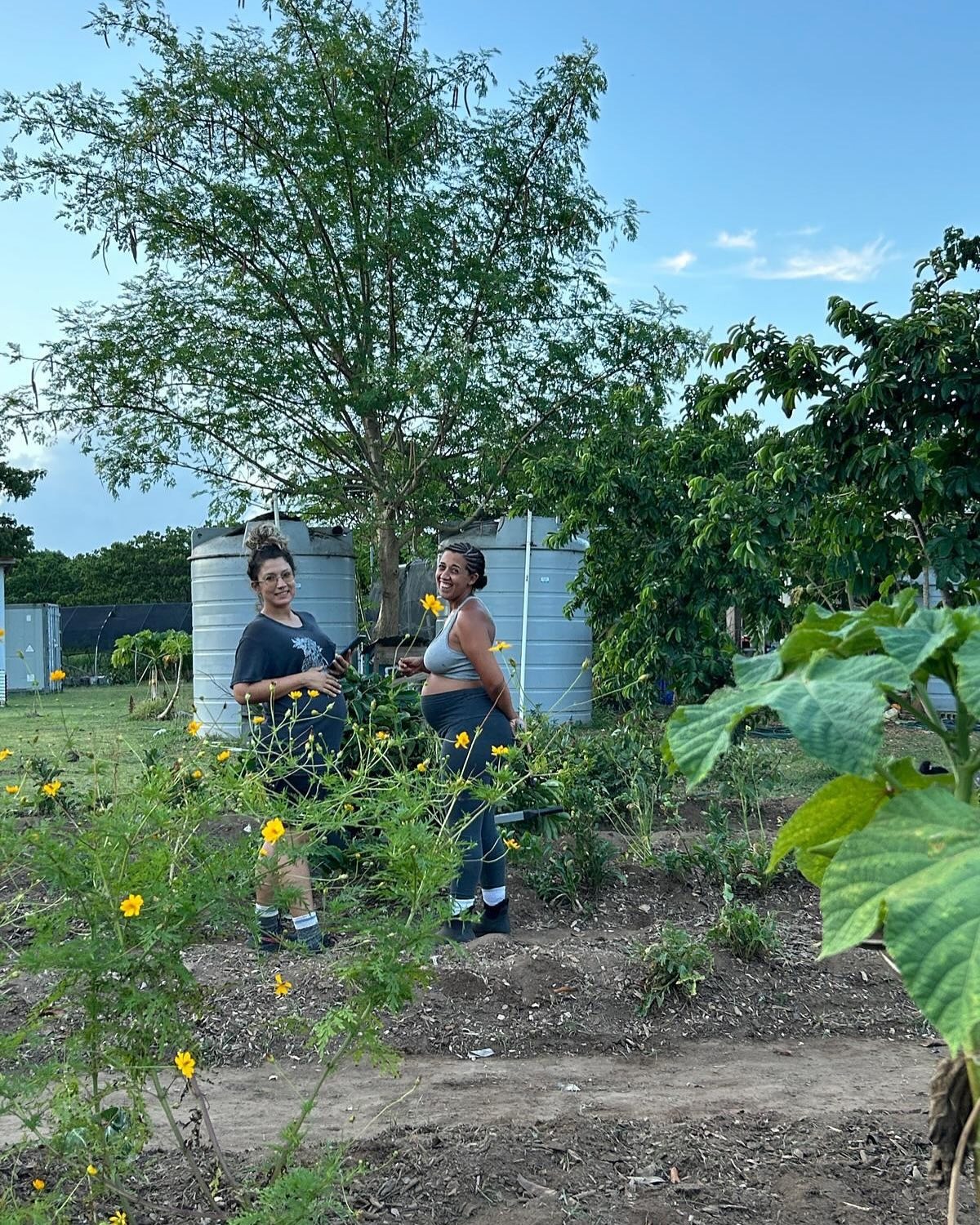
“They have incredibly powerful women, and by raising awareness about sovereignty in the agricultural sector, we really don't necessarily have to depend on it [the state].”
Health promotion starts with food
In line with their goal to support health in Vieques, La Colmena provides fresh food that is culturally viable, like cassava, sweet potato, plantain, mafafo banana, tiger nut, bok chóy, and sweet peppers. They also have several fruit trees, such as soursop, acerola, pineapple and coconut.
In their five year trajectory, they have grown more than 30 different crops ranging from fruits and vegetables to medicinal plants. Martinez Medina said that they are in the process of growing more, such as avocado and mango, but these take more time to grow.
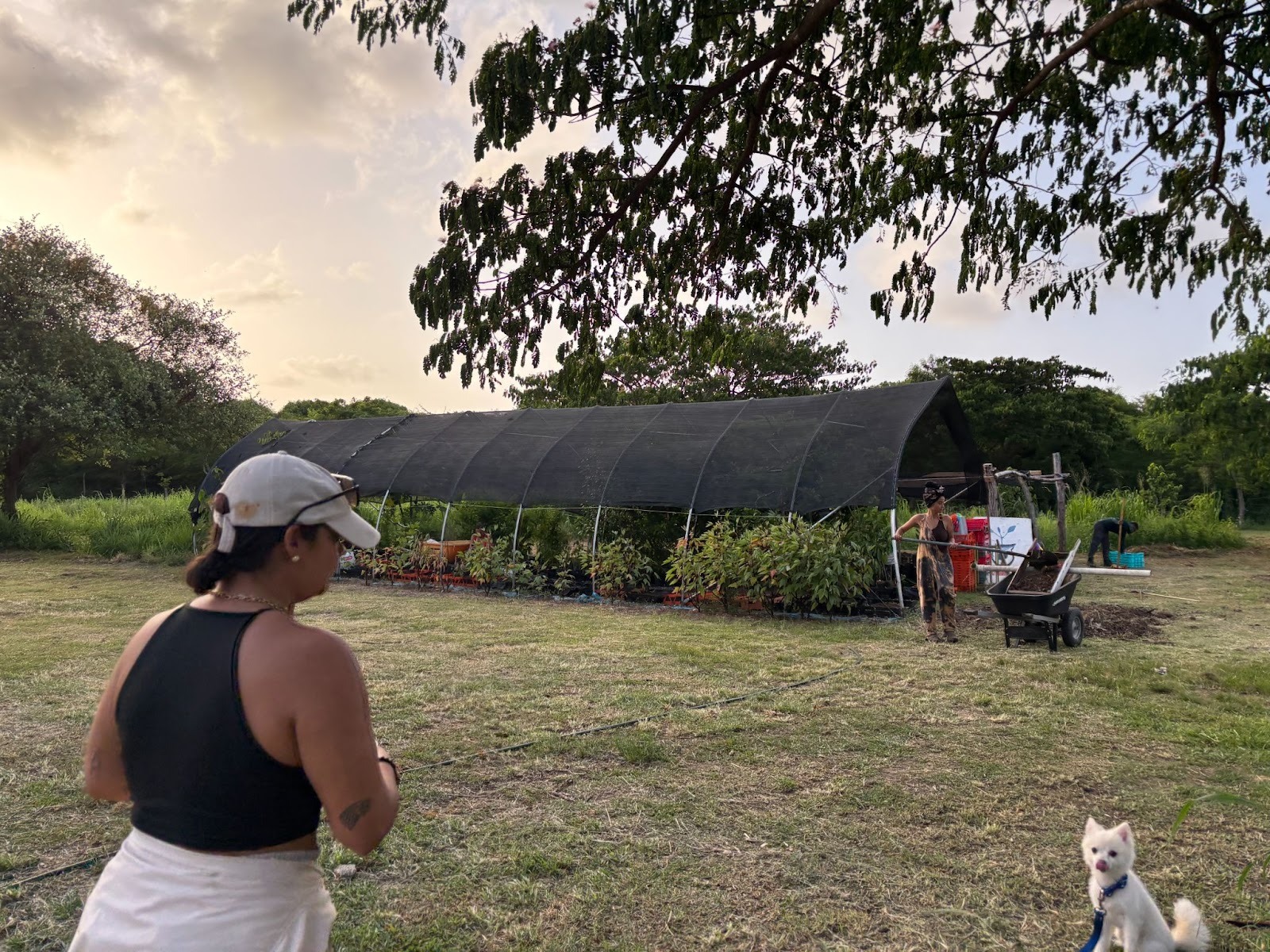
Maintaining affordable prices is an important part of Colmena’s mission. They organize markets where they sell their produce, honey, juices, and homemade recipes with a 25% discount for residents. This is a joint effort with other producers who are members of La Colectiva Agrícola Viequense (The Vieques Agricultural Collective). They also have an initiative called Boxes for Food Sovereignty, where up to 15 Viequense families receive a box full of local agricultural products every two weeks. A box costs $20, and the cost is sometimes covered by donors from the main island.
La Colmena’s founders acknowledge the limitations of being a non-profit organization and not being able to “supply [food] boxes for all of Vieques, even if we wanted to.” The lack of funds also exacerbates problems like La Colmena’s ability to afford the land they work on, as well as the maritime importation of farm resources. These limitations, however, haven’t held La Colmena back from working for their community.
Contributing to the agribusiness ecosystem and future generations
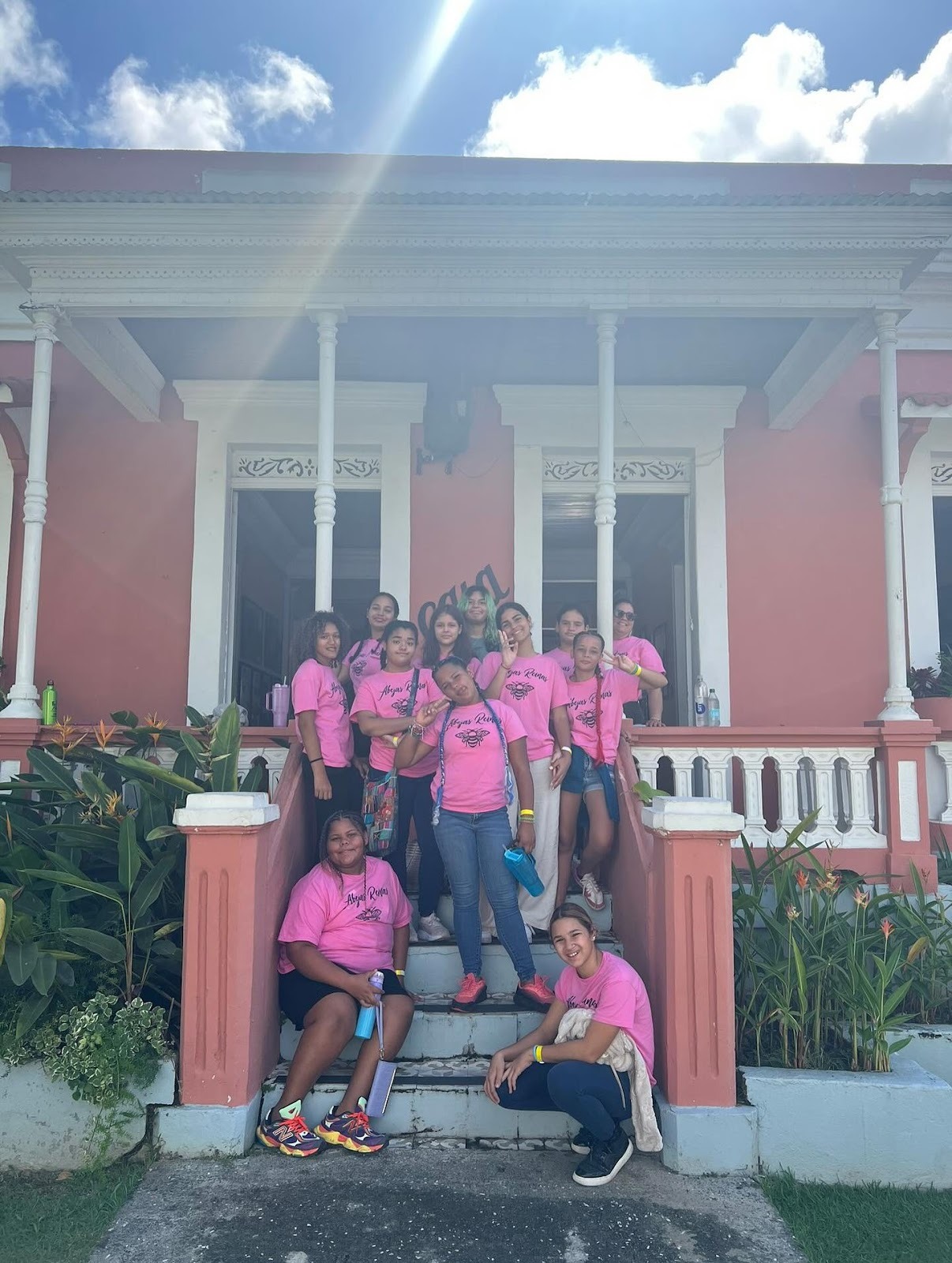
This group of women cares deeply about their educational impact, especially on young people. La Colmena held their Abejas Reinas (Queen Bees) camp over the summer, which invited young girls, between the ages of 12 and 16, to discuss themes on history, racism, food sovereignty, culture, and community. The summer camp has now been extended throughout the year, with the group meeting once a month to instill community leadership and a sense of self-esteem, said Martinez Medina.
In the latest camp, the girls were divided into pairs to create a menu for a meal. They then were taken to two supermarkets in Vieques, and analyzed what ingredients were available and for what prices. They did the same exercise in Adjuntas, a town located in the mountain chain known as the Cordillera Central, in Puerto Rico. “We realized that there was much more variety of products at Adjuntas, and the quality of the food was totally different; the prices were more affordable”, mentioned Martinez Medina.
“We talked about why these foods weren't available in Vieques, what could we do?,” she added.
The staff also collaborates with schools in and outside of Vieques, allowing students to visit the farm and understand how local food is produced. “In collaboration with one of the schools, we have a school garden where the students and staff of La Colmena have developed a school garden where the students are in charge of maintenance,” said cofounder Guadalupe Carrasquillo.
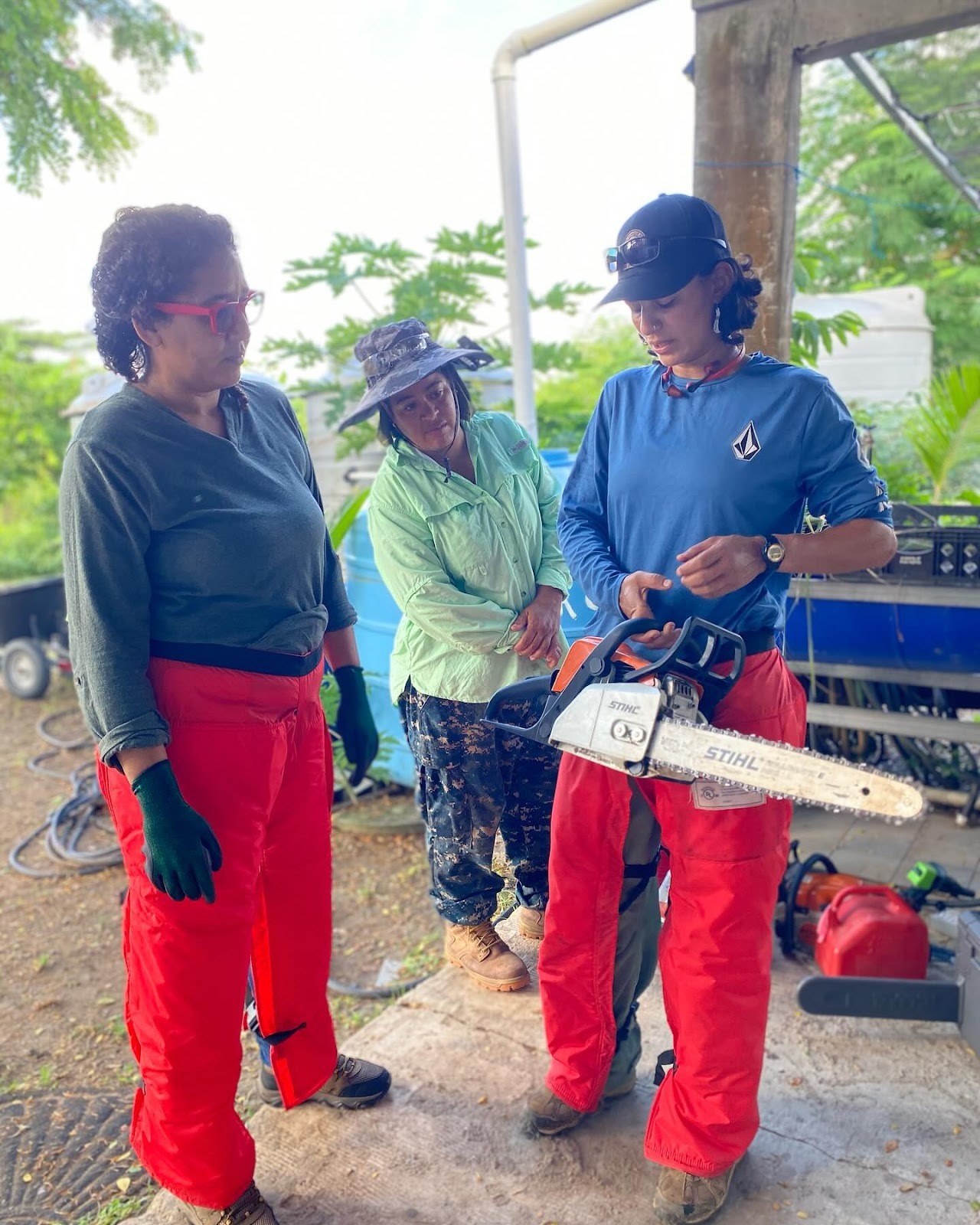
La Colmena also hosts workshops and information sessions for adults to learn about the organization and to empower the community. They train people on agroecological practices for their homes, and lead give various workshops about agriculture, food, and nutrition. I had the privilege of attending a workshop led by guest speaker James Larkin, a self-taught nutritional guru, about “decolonizing the palate”, featuring an incredibly nutritious and versatile plant called chaya. I spent the evening learning about the plants’ origins, histories, and uses, and was treated to several delicious dishes made with chaya.
The magic of planting
La Colmena’s community volunteering days on Wednesdays are a special space for Viequenses and visitors alike to interact with the land they are on, its history, and what it can provide. As Martínez Medina said, “I see La Colmena as a space, [and] an opportunity for the Viequense to reconnect with the land, to rethink themselves as part of it, to connect with the magic of sowing, harvesting, and eating healthy and culturally viable food, and so that we learn to value what we have.”
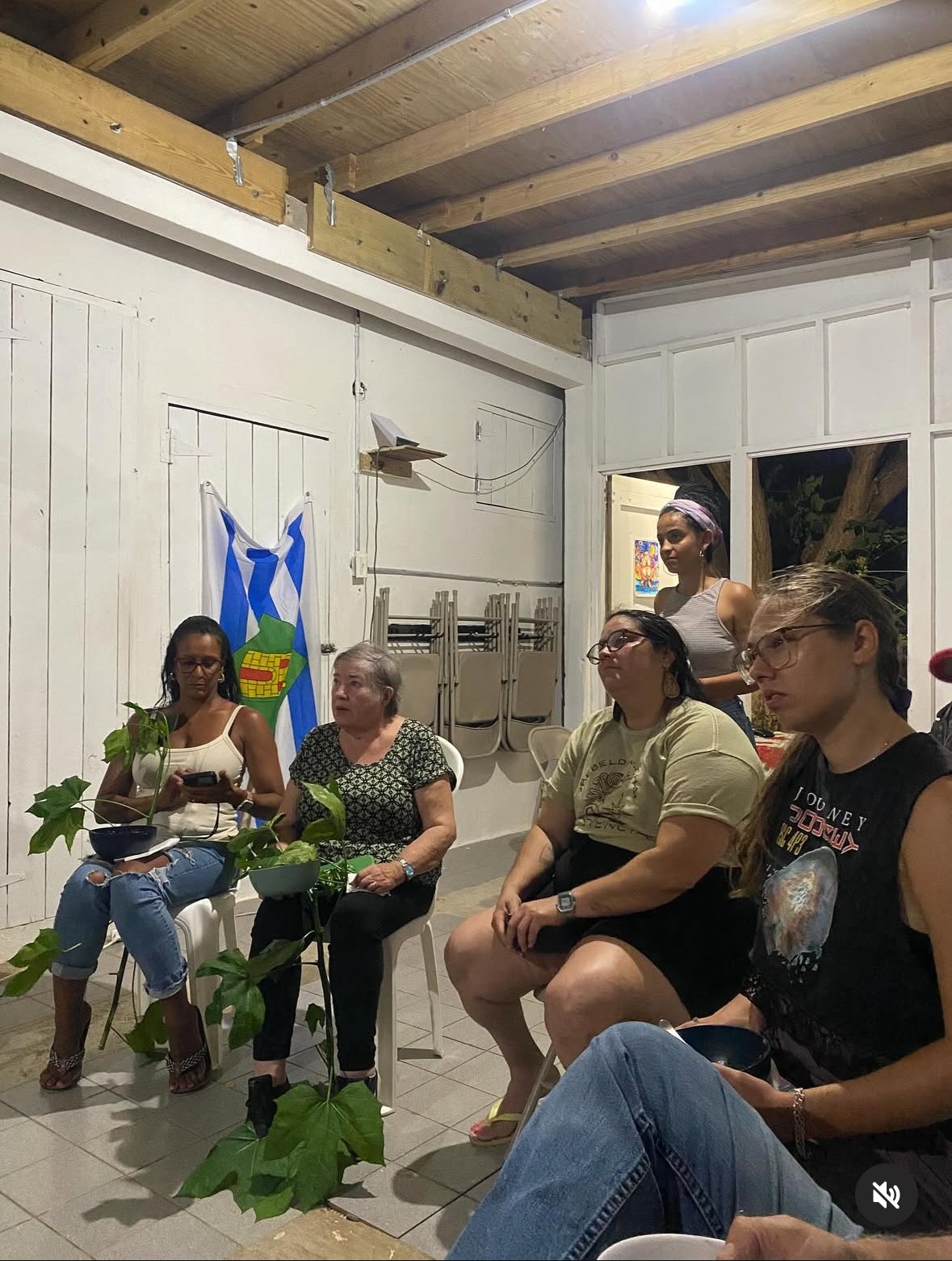
There was a magic to working at La Colmena. At the end of the volunteering days, I was thoroughly worn out. Being from New York City, I never really worked with the land before. At La Colmena, I experienced a small amount of the labor that goes into growing food from the earth and supporting a community. The work felt incredibly rewarding, despite my exhaustion. As a part of the Puerto Rican and Viequense diaspora, La Colmena provided me with the space and time to connect with the place my family once called home.
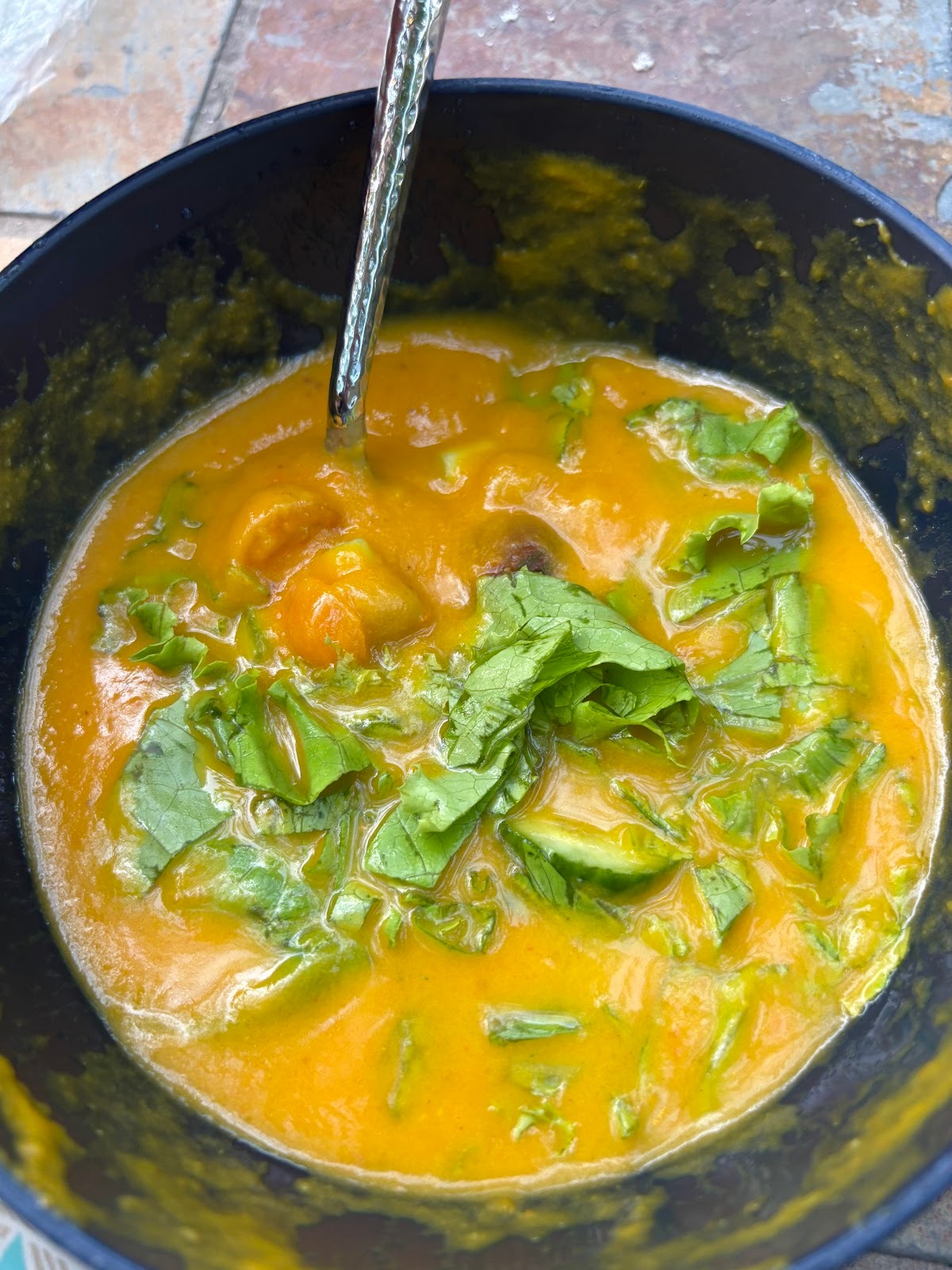
I listened to other people’s stories and learned about what Vieques and La Colmena meant to them. Women credit La Colmena for providing a space to engage with others, to destress from daily struggles, and to give back to the community. Some people even come from the main island to learn about Vieques and support the community. At the end of the day, the women of the Colmena treated me and the other volunteers to the farm’s specialty, calabaza soup, made from their own crops, and some of the first quenepas of the season, straight from the plant.



